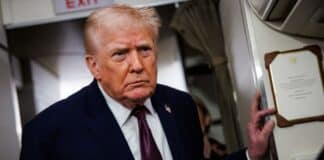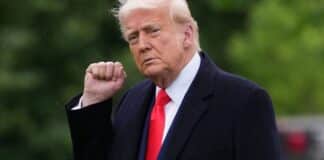President Trump has called for Federal Reserve Chair Jerome Powell to resign, accusing him of misleading Congress during recent testimony.
Trump stated that if Powell’s remarks under oath are proven false, it would justify immediate removal. He voiced support for a Congressional investigation into Powell’s conduct, citing a Senate Banking Committee hearing where Powell denied allegations of extravagant spending on the Federal Reserve’s new headquarters. During the hearing, Senator Tim Scott compared the renovations to the “Palace of Versailles,” a claim Powell disputed, asserting that none of the accusations were accurate.
Powell, originally appointed by President Trump in 2018 and reappointed by President Biden, is set to begin a new term in May 2026. Despite Trump’s prior support, his recent statements mark a sharp break, reflecting months of escalating tension between the former president and the Federal Reserve. Trump has repeatedly criticized Powell for refusing to lower interest rates, particularly during periods of economic uncertainty influenced by Trump’s proposed tariff policies. In May, Trump referred to Powell as a “fool” and accused him of failing to act in the country’s best economic interests.
Powell has defended the Fed’s stance, stating that decisions are based on economic data and long-term inflation trends, not political pressure. He emphasized that acting prematurely could risk economic instability. Under federal law, the president cannot remove a Fed Chair over policy disagreements alone; legal grounds require evidence of misconduct or failure to perform official duties.
Trump has signaled interest in replacing Powell with someone more aligned with his economic goals, naming Treasury Secretary Scott Bessent and former Fed Governor Kevin Warsh as potential successors. Economists and former Fed officials have warned that undermining the central bank’s independence could damage market confidence and erode public trust in the institution.
As economic uncertainty grows with rising inflation and fluctuating tariff policies, the standoff between Trump and Powell underscores the high-stakes battle over the direction of U.S. monetary policy and the future of the Federal Reserve’s autonomy.





